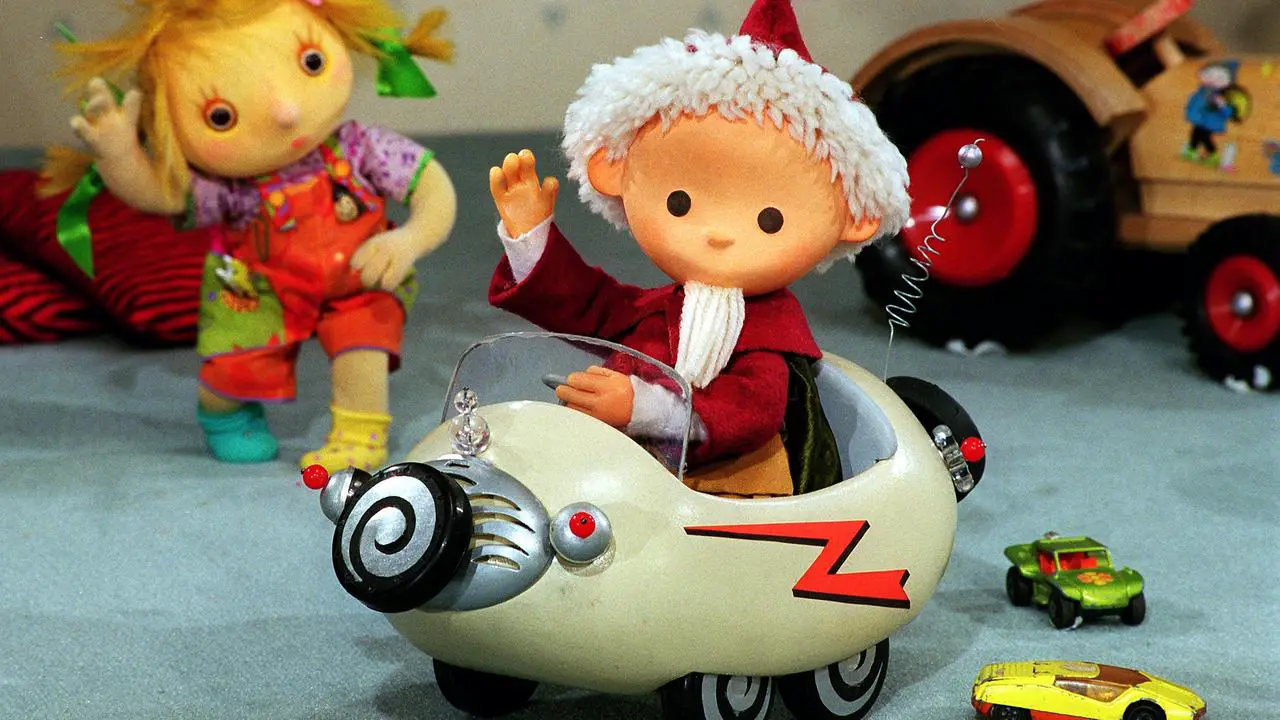No doubt one of the biggest benefits of being an expat is being exposed to and learning a second or third language. A benefit for both adults and children, but with a twist. The younger your child is, the easier they will find picking up a language, and before you know it, you will be struggling to keep up.
Starting off though, is hard for both adults and kids. Especially with German. It is not an easy language to learn, with three different genders ascribed to everyday objects that most of the time make no sense, but simply need memorizing. German words also tend to be very long, but with the distinct advantage of every single letter being pronounced, unlike in French, where half of them are silent, and it’s anybody’s guess which ones they are.
Luckily, children don’t think about a language being difficult, harsh to listen to, or just plain weird. Instead, they tend to soak up language as they do everything else, but usually still need a little help to get started. So here are 10 ways you can help your kids learn German:
International School on the Rhine
The International School on the Rhine is located in the Düsseldorf – Neuss – Cologne region. It offers an excellent international education through full-day schooling in a multilingual environment. ISR offers an outstanding academic program, individual support for students, and several extra-curricular activities through a non-selective, college-preparatory education system.
Make it a family thing
The best way to learn is in an environment where everybody is learning. Even if you might already know German, make it fun and involve not just the kids but the entire family.
Place post-it notes on things around the house, from plates to tables, on the window, toys, and the dog, if he lets you. Even if your child is still too young to read, picking up a note and reading the word out loud will still be helpful.
Try and challenge your child by picking up an object and wondering what it is called in German. When your young one comes up with the correct word, one that you did not know (or pretended not to), it will help cement that word in their mind.

Have family dinners where you all try and speak German, however stutteringly. And when you go out, try and speak the language, be it ordering a loaf of bread or just greeting your neighbour. Your kids will observe how hard you are trying and will eventually follow suit.
Read books
No matter what age your child is, get some picture books that are aimed at young German kids learning to read. In those you will have simple words denoting everyday objects, often in themed settings, and you can read them together. Learning a language is as much about learning to speak as it is learning to spell. Early exposure is good, even if your child is not quite ready yet. They will be ready soon.
Join the local library to not only access to a wide variety of books in German, but also to enjoy the reading corners, where other kids will be sitting immersed in stories. Also inquire whether the library has storytelling hours. At first it will be daunting to not understand a single word of what is being said, and your child will probably not want to go again… However, gentle persuasion and choosing a reading of a story they already know, or going through the story at home beforehand will help.
Get fun activity magazines
Germany has a wide variety of magazines for all age groups, many featuring animals, others filled with mostly comics. Magazines such as Olli & Molli are aimed at various age groups, from three years up. You’ll find many different themes, from joining the Kindergarten to going to the playground. They are full of pictures, puzzles, posters, and simple stories designed for learning to read.
There are other German magazines focusing on whatever your kids might be particularly interested in, from horses to dogs and dinosaurs. They will leaf through, look at the pictures, and pick up the odd word.
You can also find well-known comics such as Garfield or Donald Duck in Germany, which your kids might already know and love, making it easier to read them in German.
Watch TV
This is one time when watching TV should be encouraged. In Germany, at least on the main channels such as ARD and ZDF, kids’ TV is limited and often educational.

For little ones programs such as Die Sendung mit der Maus are amazingly easy to understand, and often deal with interesting subjects, such as visits to factories where they make fun items. In the evenings, for most young German kids, watching the Sandmännchen is a bedtime ritual. It’s a program telling a simple story, after which the sandman sprinkles magical sand into the children’s eyes to make them sleepy.
Popular kids series such as Sesame Street also have German versions, making the learning process more relatable. Obviously, depending on the age of your child, you can supervise or find more suitable programs.
Let them meet German children
The more personal the exposure to a language, the easier it is to learn. Take your kids to a local playground, a dedicated indoor play area, or even an IKEA ballpark. Every larger city has indoor playgrounds where you pay an entrance fee and then have a wide choice of activities, all filled with German kids of all age groups.
At first, they will probably not interact much, or refuse to speak to other children. But it is amazing how open kids are, and chances are a German child will take yours under their wing and will speak to them. Their desire to play and integrate will supersede their fear and shyness.
Join playgroups or parent meet-ups, but try local, not expat ones, where people tend to speak English. Enroll them in a local Kindergarten or creche, or take up sports activities or arty courses, depending on age and interests.
Yes, initially they will sulk and claim they don’t understand a word, but eventually the urge to interact with other children will win.
Get a German babysitter
On those days or evenings when you are trying to have a life and explore what Germany has to offer to the more grown-up crowd, get a German babysitter for your kids.

Try and find one who is trying to learn your native language (just in case of mishaps), but who is also under strict instructions to speak German to their charge. They can read together, watch some TV together, or just play, all while being exposed to the lingo.
Play games together
Boardgames not only bring the family together but can also be a good tool to learn another language.
There are simple games for the younger crowd:
- Ludo (Mensch ärgere Dich nicht), where you can practice counting as you move your piece along
- Memory, i.e., matching pairs of pictures, where you add for your kids the challenge of calling the object out in German.
And more advanced games for the kids who can already read:
- Scrabble
- Stadt/Land/Fluss
- Scattergories, where you each get categories to be completed with names of cities, animals, or whatever you choose, all beginning with the same letter.
Obviously, it’s okay to cheat sometimes, but the kids have to do it in German too!
Allow them to use apps and interactive games
You can discreetly sell German as a treat to your kids, by allowing them to use your phone or iPad. But only if they play one of the allowed apps that are useful for learning some German.
Not surprisingly, there are countless apps on the market, not all suitable for all ages, or for learning German. The Goethe Institut has published an excellent selection of good apps that promote reading and education. They also offer many German learning tools for the younger age groups, starting from age three. These range from apps with regular new stories for parents to read to their children, to self-reading for beginners. They even offer a memory game where your kids need to listen to the German words to find the matching pair.
Google ‘Lesenlernen apps’ (apps to help learning to read), and a plethora of apps comes up. One really basic and very cute one is Der kleine Drache Kokosnuss. Other good ones include the app to go with the Sandmännchen TV program, and another memory game called Bo sucht dasselbe, or a fun game that not only teaches your kids the names for other countries but also keeps them entertained when on the road, by playing the numberplate game.

And, if you are the parent of a little prince(ss), watching Prinzessin Lillifee on the app or YouTube might just do the trick.
Get creative
To spark your kids’ interest in the German language and German culture, you might just have to get creative.
- Organize themed events
- Have a baking session making German cookies according to a German recipe, mentioning the key words as you go (or see our recipe for the apfelstrudel!)
- Visit a touristy or scenic spot, or whatever your adoptive hometown has to offer and learn something about the history in German through keywords and the association of being there
- Go eat out at a café or restaurant, ordering in German
- Shop at the market and boost your vocabulary for the vegetables and fruit
- Maybe learn a German lullaby or traditional seasonal song and give a rendition
- Look up an easy-to-follow craft video in German and create something arty as a present for somebody
Get help
Once you are past the soaking up words and “blurting them out in no particular order” stage, you might want to consider engaging a tutor. It depends of course on the age and future plans of your kids – are you going to enroll them in a German or international school, for example? But much of a language can easily be learned without professional help, through immersion and practice, and allowing your kids to make mistakes.
Often the grammar and sentence structure come naturally. You know, when something doesn’t quite sound right, and you get a feeling what it should be, without being able to pinpoint why? German grammar especially can be tricky, and once you have bad habits or phrasing installed, they can be difficult to unlearn. Even Germans sometimes get certain aspects of their language wrong (Dativ, anyone?), and it just doesn’t sound good.

There are plenty of German-as-a-foreign-language tutors and teachers out there, with some specializing in younger age groups, making learning the dreaded grammar (nearly) fun.
Useful resources
For some more solid advice on learning materials and fun resources, go to the Goethe Institut and look under Learning German.







